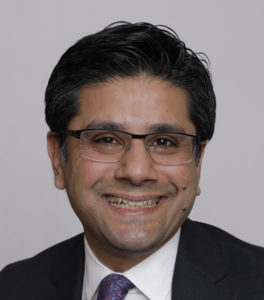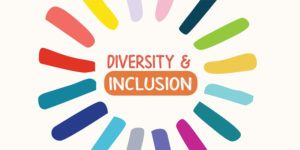Algonquin College Students Tackle Racism, Diversity and Inclusion Issues
Posted on Monday, November 23rd, 2020
“This is a time to be bold.” Those words from Yasir Naqvi set the tone for an engaging dialogue among students at Algonquin College’s Pembroke Waterfront Campus at the first student-led Justice, Equity, Diversity and Inclusion forum.
 Naqvi is a former Attorney General for the province of Ontario and is currently the Chief Executive Officer for the Institute of Canadian Citizenship. He is also a Director with United Way East Ontario where he has played a leading role in stimulating a community response to systemic racism. Through his advocacy work, he has stressed the importance of listening to those who have been subjected to racism, adding “We don’t need more studies.”
Naqvi is a former Attorney General for the province of Ontario and is currently the Chief Executive Officer for the Institute of Canadian Citizenship. He is also a Director with United Way East Ontario where he has played a leading role in stimulating a community response to systemic racism. Through his advocacy work, he has stressed the importance of listening to those who have been subjected to racism, adding “We don’t need more studies.”
In an opening presentation to kick off the forum, Naqvi told the students and employees of the College that Canadians want change. “We should not squander this opportunity to change the status quo. If we fail to move the yardstick to make change we are failing our future generations,” said Naqvi.
Naqvi spoke eloquently for about a half-hour before taking questions from the group. He encouraged the students to “be relentless and to champion the change.” He spoke about the importance of getting involved in advocacy opportunities such as peaceful protests and elections, at one point saying, “Make it an election issue and if you’re still not satisfied, run for office.”
After commending the students for getting involved with addressing systemic racism, Naqvi stepped out of the forum leaving the students to use virtual breakout rooms to begin the process of developing their own goals and strategies. For an hour they talked about the issues and brainstormed on what they could do to make a difference.
The conversations weren’t easy. Social justice issues like racism can be difficult to talk about and can be emotionally draining, but Naqvi’s point of being “willing to take risk and to be bold” carried the day as the students shared their perspectives and learned together.

Shelly Sutherland is the Campus Student Success Specialist. She worked closely with a group of students who call themselves JEDI to plan the event. JEDI are student leaders who act as mentors for first-year students. They creatively used their nickname to brand the forum, ensuring that each letter stood for what they were trying to accomplish, a respectful conversation that focused on Justice, Equity, Diversity and Inclusion.
“We need to talk, we need to listen and we need to act,” says Sutherland. She adds, “I am proud and inspired by our students, their constant stepping up to amplify voices of the unheard and in many cases amplify their own voices. Whether easy or difficult, they are willing to continue the work with action!”

This is just the beginning. The students have committed to continuing this work as they do their part to bring diversity issues to the surface where they can be addressed through thoughtful discussion and calls to action.
“This forum validated the willingness of Algonquin College to break down the barriers and address the social inequities that exist in our community,” says Nursing student Deena Hassan. “The forum was the first step, and we’re only moving forward after this. As an Egyptian-African, and studying in a town that is predominantly white, I can feel at ease knowing that Algonquin College is taking the steps to ensure diversity and inclusion at the campus,” adds Hassan, who is working with her classmate Grace Grant and the Students’ Association to establish a Black, Indigenous, People of Colour (BIPOC) Student Society.
The students will not be working in isolation. The Mayor of Pembroke has established a roundtable committee to address racism and the Local Immigration Partnership group is also consulting with various community members as more people join the effort to address an issue that is not new but is now getting the attention it deserves.
The 2015 release of Justice Murray Sinclair’s Truth and Reconciliation report was a watershed moment in Canadian history. The report and its 94 calls to action bluntly described the horrific treatment of the country’s Indigenous people and compelled Canadians to acknowledge the harm that was done and to create a new relationship with Indigenous people that honours their culture and their contributions to our nation.
But it was the death of 46-year-old George Floyd, an African American man who died at the hands of a white police officer in Minnesota in May of 2020 that brought people into the streets in both American and Canadian cities. Floyd’s death came at the height of the first wave of the COVID-19 pandemic and despite restrictions on public gatherings, his death sparked “Black Lives Matter” protests around the world.
Floyd had died while handcuffed and pinned to the ground, his death caught on video. The circumstances of his death not only outraged the black community but all communities. This time, “Black Lives Matter,” became a call to action for everyone.
“The pandemic has really exposed the fault lines in our society. It has magnified the systemic issues that we have been living through for some time,” Naqvi told the students, adding that racism happens everywhere.
“Don’t give up. This will take some time, but be bold,” he said.
The students are prepared to do just that. Their work is just beginning, but it’s already off to a great start.
Posted by Jamie Bramburger, Manager of Community and Student Affairs.
- Posted in
- Waterfront Campus Blog